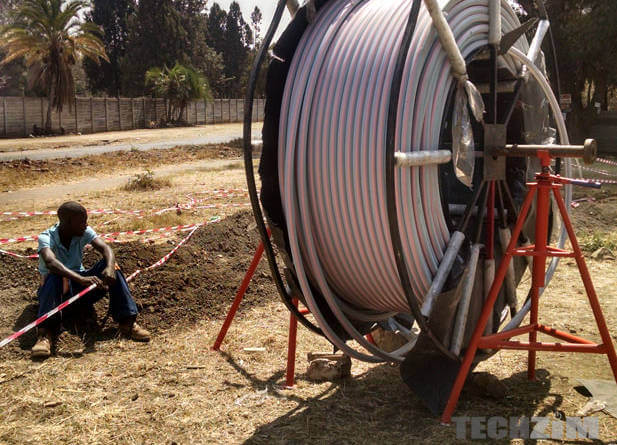In 2020 Dark Fiber Africa (DFA) opened a shop in Zimbabwe after obtaining a Class B Internet Access Provider license from POTRAZ. Since then they have been laying fiber in the metropolitan areas of Harare. They recently partnered up with Bandwidth and Cloud Services Group (BCS) for a long-haul fiber backbone project.
This project is aimed at providing better connectivity between towns and cities across the country with the grand plan being to provide connectivity between all countries in the region. So far the project has laid down 1180km of fiber stretching from Beitbridge to Victoria Falls in its first phase.
The second phase of the project which will commence in early 2023 will extend the network from Somabula to Harare via Gweru and from Bulawayo to Plumtree as well as from Harare to Mutare.
DFA press release
The build cost of the Beitbridge to Victoria Falls long-haul network infrastructure was over USD18 million and the next phase is expected to cost the same.
DFA is also coming in as an additional gateway for Zimbabwe’s internet and is the 3rd biggest in the country behind Liquid and Telone. The promise of this is less congestion on these gateways leading to faster internet. That is the hope.
So far one long-haul backbone fiber project has been implemented by DFA with another underway in 2023. Three more such projects are in the pipeline which will be interconnecting Zimbabwe with South Africa, Botswana, Zambia, and Mozambique. Africa is connected to the rest of the world predominantly by undersea fiber cables which make landfall in coastal countries. Such cross-border connections with countries that are not landlocked will grant DFA access to these connections both on the east and west side of Africa.
Additionally having as many connections to the outside world improve network resilience in the country such that accidents like a farmer plowing a backbone cable and damaging it will not shut down a whole country’s internet.
Let’s talk about BCS, the company owning 68% of the project
Bandwidth and Cloud Services group is the pan-African business with the biggest share of the project. At over 80 000km of fiber laid, it has the second-largest fiber network in Africa behind Liquid Intelligent Technology’s tally of over 100 000km. So they are not new to projects of this scale.
Most of their operations were restricted to central Africa up until 2018 when they got a license to set up a presence in Zambia marking their entry into Southern Africa. In 2021 they obtained licenses to operate in Zimbabwe and Angola and which then initiated the 5-phase backbone fiber project they are running in Zimbabwe.
BCS is providing most of the funding and contracting DFA to perform the fiber laying. Since the requirement is a carrier-grade network (A network ISPs like TelOne and Dandemutande can lease bandwidth from) DFA is their partner of choice as their business is to set up such networks. In fact, DFA is so good at this that it was acquired by Vodacom in South Africa for its expertise in developing such carrier-grade networks.

What’s your take?